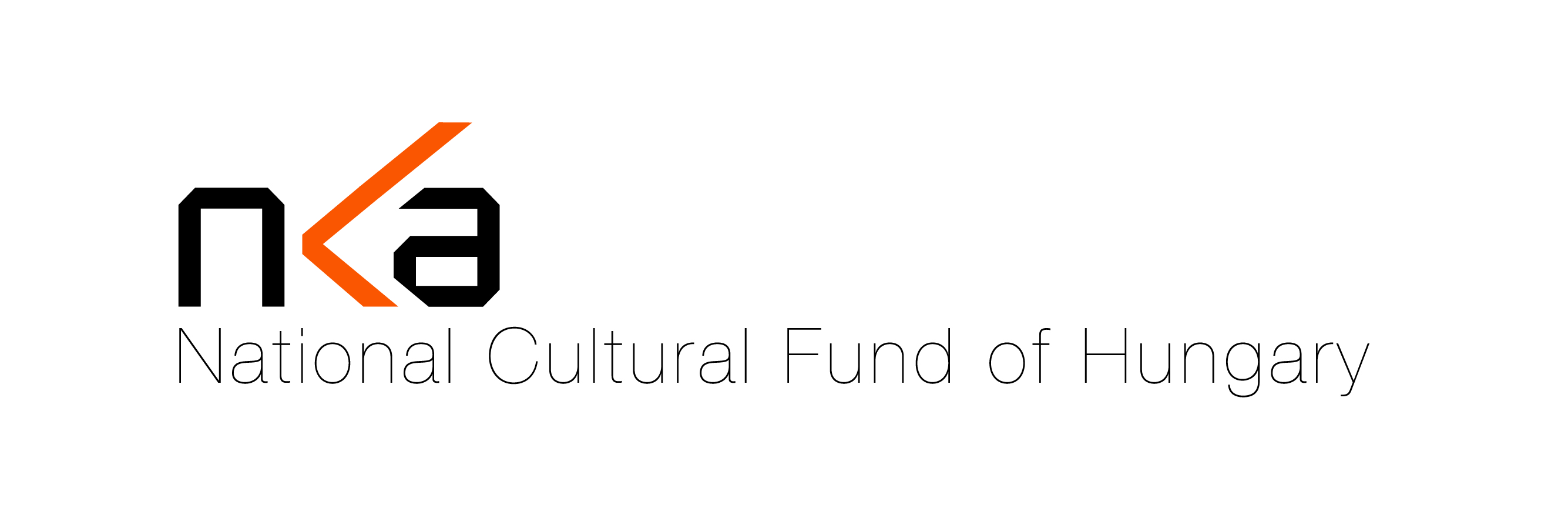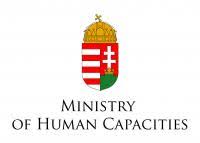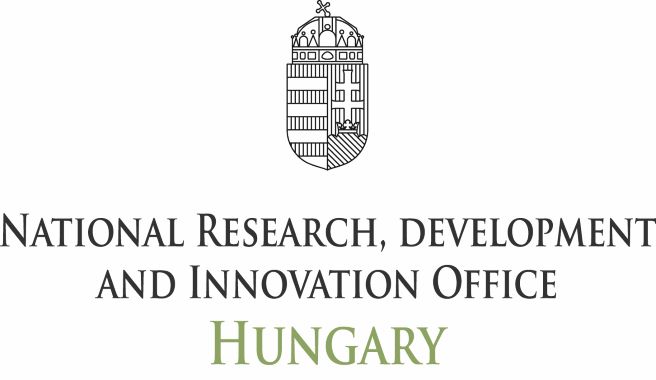Publications, articles in connection with the Kodály Concept
This section intends to provide an insight into the major publications in connection with the Kodály Concept.
It contains a selection of books related to the international recognition of Kodály’s principles in music education; examples of textbooks and guidelines for the practical application of Kodály-based teaching.
Currently only contains publications written in Hungarian and English.
The page also includes links to other resourses (databases, bookshops; online archives of publications of Kodály societies).
- Zoltán Kodály’s writings
Hungarian:
Kodály, Z. (2007a). Visszatekintés. (Bónis F., ed.) (3. ed., Vol. 1). Budapest: Argumentum.
Kodály, Z. (2007b). Visszatekintés. (Bónis F., ed.) (3. ed., Vol. 2). Budapest: Argumentum.
Kodály, Z. (2007c). Visszatekintés. (Bónis F., ed.) (3. ed., Vol. 3). Budapest: Argumentum.
Kodály, Z. (1989). Közélet, vallomások, zeneélet. In Kodály Zoltán hátrahagyott írásai. Budapest: Szépirodalmi Könyvkiadó.
Kodály, Z. (1993). Magyar zene, magyar nyelv, magyar vers. In Kodály Zoltán hátrahagyott írásai. Budapest: Szépirodalmi Könyvkiadó.
English:
Collections:
Kodály, Z. (1974). The Selected Writings of Zoltán Kodály. (Bónis, Ferenc, ed.). Budapest: Corvina.
Kodály, Z. (1986). Zoltán Kodály in North America (Johnston, Richard, ed.). Willowdale, ON: Avondale Press.
Zoltán Kodály (2019). Writings on Music Education (Ittzés, Mihály ed.) Budapest: Liszt Academy.
Articles:
Kodály, Z. (1961). The Tasks of Musicology in Hungary. Studia Musicologica Academiae Scientiarum Hungaricae, 1(1/2), 5–8. https://doi.org/10.2307/901493
Kodály, Z. (1963). Opening Address [ Second International Musicological Conference]. Studia Musicologica Academiae Scientiarum Hungaricae, 5(1/4), 9–10.
Kodaly, Z. (1967). Folk Song in Pedagogy. Music Educators Journal, 53(7), 59–61. https://doi.org/10.2307/3391025
Kodály, Z. (1967). Pál Járdányi, 1920-1966. Studia Musicologica Academiae Scientiarum Hungaricae, 9(1/2), 5–6. Retrieved from JSTOR.
Kodály, Z., & Dille, D. (1967). Souvenirs. Studia Musicologica Academiae Scientiarum Hungaricae, 9(3/4), 255–263. https://doi.org/10.2307/901467
Kodály, Zoltán. (1962). Folk Music and Art Music in Hungary. Tempo, (63), 28–36.
Kodály, Zoltán. (1964). Address by Zoltán Kodály at the Opening Ceremony. Journal of the International Folk Music Council, 16, 4–5. https://doi.org/10.2307/835056
Kodály, Zoltán. (1977). Hungarian Instrumental Teaching. Bulletin of the International Kodály Society, 2(1–2), 74–81.
Kodály, Zoltán. (1982a). An Unsent Message to the First International Verdi Congress (1966). Bulletin of the International Kodály Society, 7(2), 26.
Kodály, Zoltán. (1982b). Introduction to the Hungarian Edition of Joseph Szigeti’s Book (1965). Bulletin of the International Kodály Society, 7(2), 36.
Kodály, Zoltán. (1982c). Opening Address (1965). Bulletin of the International Kodály Society, 7(2), 34.
Kodály, Zoltán. (1982d). Preconditions of Comparative Folk Tune Research (1956). Bulletin of the International Kodály Society, 7(2), 33.
Kodály, Zoltán. (1982e). Reminiscences (1965). Bulletin of the International Kodály Society, 7(2), 3.
Kodály, Zoltán. (1982f). Some Letters by Kodály. Bulletin of the International Kodály Society, 7(2), 10–25.
Kodály, Zoltán. (1982g). The Composer of Psalmus Hungaricus on Music Teaching in the Kindergarten: Statement (1941). Bulletin of the International Kodály Society, 7(2), 35.
Kodály, Zoltán. (1982h). The Development of Musical Folklore (1923). Bulletin of the International Kodály Society, 7(2), 32.
Kodály, Zoltán. (1985a). Inauguration of the New Building of the Kecskemét Music Primary School, Speech (1964). Bulletin of the International Kodály Society, 10(1), 8–10.
Kodály, Zoltán. (1985b). Music in the Nursery School. Radio Speech (1941). Bulletin of the International Kodály Society, 10(1), 11–14.
Kodály, Zoltán. (1985c). On the Successful Study of Music. Statement (1957). Bulletin of the International Kodály Society, 10(1), 7–8.
Kodály, Zoltán. (1985d). The Role of the Authentic Folksong in Music Education. Lecture (Interlochen, 1966) = Die Rolle des Volksliedes in der Musikerziehung. Bulletin of the International Kodály Society, 10(1), 15–21.
Kodály, Zoltán. (1997a). East and West in Music : Address (1963). Bulletin of the International Kodály Society, 22(1).
Kodály, Zoltán. (1997b). The Tasks of Musicology in Hungary (1961). Bulletin of the International Kodály Society, 22(1), 54–55.
Kodály, Zoltán. (2004). Introduction to Frigyes Sándor’s Book on Musical Education in Hungary (1966). International Journal of Music Education; London, Eng., 22(2), 146–147.
Kodály, Zoltán. (2010). Des mots de Kodály = Words of Kodály. Bulletin of the International Kodály Society, 35(2), 4–7.
Kodály, Zoltán. (2012). Zoltán Kodály’s postscript to the first, second and third editions of Bicinia hungarica (L. Szamosfalvi, trans.). Bulletin of the International Kodály Society, 37(2), 3–8.
Kodály, Zoltán. (2015). Speech Delivered at the Opening Ceremony of the 1946–47 Academic Year at the Liszt Academy of Music (L. N. Nemes, trans.). Bulletin of the International Kodály Society, 40(2), 3–5.
Kodály, Zoltán. (2017a). At the Dedication Ceremony of the Cultural Centre of Dunapataj. Bulletin of the International Kodály Society, 42(1), 4–6.
Kodály, Zoltán. (2017b). Popularizing Serious music : Speech Presented at the Meeting of the League of Composers in New York City, December 1946. Bulletin of the International Kodály Society, 42(1), 7–9.
Kodály, Zoltán, & Erdely, S. (1970). Pentatonicism in Hungarian Folk Music. Ethnomusicology, 14(2), 228–242. https://doi.org/10.2307/849798
Kodály, Zoltán, & Nesleny, J. (1982). Coversation with Zoltán Kodály for KMAX Radio Station, USA, on 4, August, 1966. Bulletin of the International Kodály Society, 7(2), 6–10.
Kodály, Zoltán, & Wilson, S. (1959). Ralph Vaughan Williams O. M. Journal of the International Folk Music Council, 11, 3–5.
Strauss, R., Stravinsky, I., & Kodály, Z. (1972). Correspondence with Dr. Roth. Tempo, (98), 9–20.
List of Kodály’s music pedagogical exercises in chronological order
(published in English as „Kodály Choral Method” by Boosey & Hawkes)
Bicinia Hungarica I (1937)
Énekeljünk tisztán – Let Us Sing Correctly (1941)
15 kétszólamú énekgyakorlat – 15 Two-Part Singing Exercises (1941)
Bicinia Hungarica II, III (1941)
Bicinia Hungarica IV (1942)
333 olvasógyakolat – 333 Reading Exercises (1943)
Ötfokú zene I – Pentatonic music I (1943)
24 kis kánon a fekete billentyűkön – 24 Little Canons On Black Keys (1946)
Ötfokú zene II, III, IV – Pentatonic music II, III, IV (1947)
55 kétszólamú énekgyakorlat – 55 Two-Part Singing Exercises (1954)
44 kétszólamú énekgyakorlat – 44 Two-Part Singing Exercises (1954)
33 kétszólamú énekgyakorlat – 33 Two-Part Singing Exercises (1954)
Tricinia (1954)
Epigrammák – Epigrams (1954)
Kis emberek dalai – 50 Nursery songs (1962)
66 kétszólamú énekgyakorlat – 66 Two-Part Singing Exercises (1963)
22 kétszólamú énekgyakorlat – 22 Two-Part Singing Exercises (1965)
77 kétszólamú énekgyakorlat – 77 Two-Part Singing Exercises (1967)
- Books on Kodály and the Kodály principles of music education
2/1. Biographies
Hungarian:
Bónis Ferenc (2011). Élet-pálya Kodály Zoltán. Budapest: Balassi Kodály Archívum.
Eősze László (1956). Kodály Zoltán élete és munkássága. Bp: Zeneműkiadó.
Eősze László (1967). Kodály Zoltán. In Kis zenei könyvtár 37. Budapest: Gondolat.
Eősze László (1977). Kodály Zoltán életének krónikája. In Napról napra ... nagy muzsikusok életének krónikája 13. Budapest: Zeneműkiadó.
Eősze László (1982). Forr a világ... Kodály Zoltán élete (2. kiad.). Bp: Móra.
Eősze László (2007). Kodály Zoltán származása és családja.
Eősze László (1982). Kodály Zoltán élete képekben és dokumentumokban jubileumi kiadás Kodály Zoltán születésének 100. évfordulójára (3., bőv. kiad.). Bp: Zeneműkiadó.
English:
Eősze, László (1962). Kodály Zoltán: His Life and Work. London, UK: Collet’s.
Eősze, László (1982). Zoltán Kodály: His Life in Pictures and Documents: Special Edition for the Kodály Centenary (2. rev. and enlarged ed.). Bp: Corvina.
Young, Percy. M. (1964). Zoltán Kodály: a Hungarian Musician. London: Benn.
Bónis, Ferenc. (2018). Life on Track: Zoltán Kodály. Budapest: Balassi Kiadó - Kodály Archives.
2/1. Reminiscences
Bónis Ferenc. (2017). Így láttuk Kodályt nyolcvannyolc emlékezés (4., jav.bőv. kiad.). Budapest: Balassi Kodály Zoltán Emlékmúzeum és Archívum.
Hein, Mary Alice (1992). The legacy of Zoltán Kodály: An Oral History Perspective. Budapest: International Kodály Society.
Vikár, László (1985). Reflections on Kodály. Budapest: International Kodály Society.
„Kodály as I knew him” series in the Bulletin of the International Kodály Society
Bartók, Béla Jr. (1978). Kodály as I knew him. Bulletin of the International Kodály Society, 3(2), 23–25.
Doráti, Antal (1989). Kodály as I knew him. Bulletin of the International Kodály Society, 14(1), 14–22.
Ferencsik, János (1984). Kodály as I knew him. Bulletin of the International Kodály Society, 9(2), 33–36.
Kadosa, Pál (1984). Kodály as I knew him. Bulletin of the International Kodály Society, 9(1), 39–42.
Keresztury, Dezső (1990). Kodály as I knew him. Bulletin of the International Kodály Society, 15(2), 29–33.
Molnár, Antal (1980). Kodály as I knew him. Bulletin of the International Kodály Society, 5(1), 48–51.
Nádasdy, Kálmán (1981). Kodály as I knew him. Bulletin of the International Kodály Society, 6(1), 40–44.
Serly, Tibor (1979). Kodály as I knew him. Bulletin of the International Kodály Society, 3(1), 52–55.
Szokolay, Sándor (1989). Kodály as I knew him. Bulletin of the International Kodály Society, 14(1), 10–13.
Vargyas, Lajos (1979). Kodály as I knew him. Bulletin of the International Kodály Society, 3(1), 48–52.
2/3. Bibliographies
Barron, John. P. (1979). A Selected Bibliography of the Kodály Concept of Music Education. In Kodály and Education Monograph 1. Willowdale: Avondale.
Kaplan, Barbara (1985). The Kodály Concept: A Bibliography for Music Education. In Kodály : A Dynamic Tradition 1. Whitewater, WI: OAKE.
Szögi, Ágnes (1993). Kodály Zoltán zenepedagógiai eszméi a nemzetközi gyakorlatban: válogatott bibliográfia a Kodály Intézet gyűjteményéből = Kodály's Music Educational Concept in the International Practice: Selected Bibliography from the Kodály Institute. Kecskemét: Kodály Intézet.
Houlahan, Mícheál, & Tacka, Philip (1998). Zoltán Kodály: A Guide to Research. New York; London: Garland.
Links
La Voix de Kodály en France: Selected Bibliography on the Kodály Adaptation http://kodaly.fr/wp-content/uploads/2018/09/VKF_Bibliographie.pdf
German Kodály Society: Selected Bibliography on the Kodály Adaptation http://www.kodaly.de/literaturliste-kodaly.pdf
Collection (full-text) of The Kodály Music Education Institute of Australia (KMEIA) national publications https://search.informit.com.au/titles;term=kodaly
Index of the KMEIA’s published articles: http://www.kodaly.org.au/akj/index/
Holy Names Univeristy Kodály Center, The American Folk Song Collection http://kodaly.hnu.edu/
2/4. Books, book chapters on the Kodály Concept
Ádám Jenő (1971). Growing in Music with Movable Do: Translation of the Original Kodály-Method. In The Movable Do Series 1. Pannonius Books. New York: Pannonius Central Service.
Ittzés Mihály (2002). Zoltán Kodály, in Retrospect: a Hungarian National Composer in the 20th Century on the Border of East and West. Kecskemét: Kodály Intézet.
Dobszay László (2009). After Kodály reflections on music education (2., enlarged ed.). Kecskemét: Kodály Intézet.
Szőnyi Erzsébet (1979). Kodály’s Principles in Practice: An Approach to Music Education Through the Kodály Method (3. ed.). Bp: Corvina. (New edition available from Editio Musica Budapest)
Nemes, László Norbert (2017). ‘Let the Whole World Rejoice!’: Choral Music Education: The Kodály Pespective. In F. Abrahams & P. D. Head (Eds.), The Oxford Handbook of Choral Pedagogy (pp. 87–103). New York, NY: Oxford University Press.
Strong Alan D. (1992). Who was Kodály? In: OAKE Monograph series. s.l.: OAKE.
Bacon, Denise (1993). Hold Fast to Dreams: Writings Inspired by Zoltán Kodály. Wellesley, MA: Kodály Center of America.
Choksy, Lois (1981). The Kodály Context: Creating an Environment for Musical Learning. Englewood Cliffs, NJ: Prentice-Hall.
Choksy, Lois (1988). The Kodály Method: Comprehensive Music Education from Infant to Adult (2nd ed.). Englewood Cliffs, NJ: Prentice-Hall.
Choksy, Lois (1999). The Kodály Method II: Folksong to Masterwork. Upper Saddle River, NJ: Prentice Hall.
Zemke, Lorna Sr. (1977). The Kodály Concept: Its History, Philosophy, and Development. Champaign, IL: MFoster Music Co.
- Practical Guidebooks, Adaptations, Textbook/Songbook Series
This section only contains a short selection of more recent and still in-print publications in English language. More publications are available from the online bookshops (see links below).
A detailed bibliography of publications related to the international adaptation of the Kodály Concept (published between 1955-1992) can be found in:
Szögi, Ágnes (1993). Kodály Zoltán zenepedagógiai eszméi a nemzetközi gyakorlatban: válogatott bibliográfia a Kodály Intézet gyűjteményéből = Kodály's Music Educational Concept in the International Practice: Selected Bibliography from the Kodály Institute. Kecskemét: Kodály Intézet.
3/1. From Hungarian authors:
Dobszay, László (2011). The World of Tones: Introduction to Music Literature (Vol. 1–2). Kecskemét: Kodály Intézet.
Forrai Katalin (1998). Music in Preschool (Rev. and expanded ed.). Wooloowin, QLD: Clayfield School of Music.
Legányné Hegyi, Erzsébet (2007). Stylistic Knowledge on the Basis of the Kodály-concept: Advanced Level (Vol. 1-2). Brisbane: Clayfield School of Music.
Papp, Károlyné & Spiegel, Marianna (2016). Solfege in the Classroom. Kecskemét: Liszt Ferenc Academy of Music - Kodály Institute Foundation for the Kecskemét Kodály Institute.
Szőnyi, Erzsébet (1974). Musical Reading and Writing (Vol. 1–2). Budapest: Editio Musica Budapest.
International Kodály Society (2006). Music, a Universal Language: 31 Folksongs from 21 Different Countries, with an Arrangement of Each Song for 2- or 3-part Children’s or Youth Choir. Budapest: International Kodály Society.
3/2. Textbook series
National Youth Choir of Scotland Singing Games and Rhymes series (UK)
- Geoghegan, Lucinda (2002). Singing Games and Rhymes for Tiny Tots. Glasgow: National Youth Choir of Scotland.
- Geoghegan, Lucinda (2002). Singing Games and Rhymes for Early Years. Glasgow: National Youth Choir of Scotland.
- Geoghegan, Lucinda (2017). Singing Games and Rhymes for Early Years,2. Glasgow: National Youth Choir of Scotland.
- Geoghegan, Lucinda (2005). Singing Games and Rhymes for Middle Years. Glasgow: NYCOS.
- Geoghegan, Lucinda (2017). Singing Games and Rhymes for Middle Years, 2. Glasgow: NYCOS.
- Geoghegan, Lucinda & Nemes, László Norbert (2014). Singing Games and Rhymes for ages 9 to 99. Glasgow: NYCOS.
National Youth Choir of Scotland Go for Bronze/Silver/Gold series (UK)
- Geoghegan, Lucinda & Bell, Christopher. (2007). Go for Bronze: Level One & Two. Glasgow: NYCOS.
- Geoghegan, Lucinda & Bell, Christopher. (2007). Go for Silver: Level One & Two. Glasgow: NYCOS.
- Geoghegan, Lucinda & Bell, Christopher. (2007). Go for Gold: Level One & Two. Glasgow: NYCOS.
- Geoghegan, Lucinda & Bell, Christopher. (2011). Go for Bronze: Teacher Book. Glasgow: NYCOS.
- Geoghegan, Lucinda & Bell, Christopher. (2011). Go for Silver: Teacher Book. Glasgow: NYCOS.
- Geoghegan, Lucinda & Bell, Christopher. (2011). Go for Gold: Teacher Book. Glasgow: NYCOS.
Rowsell, Cyrilla, & Vinden, David Jolly Music series
- Rowsell, Cyrilla & Vinden, David (2008). The music handbook Teaching music skills to children through singing: Beginners. In Jolly Music. Chigwell: Jolly Learning Ltd.
- Rowsell, Cyrilla & Vinden, David (2009). The music handbook Teaching music skills to children through singing: Level 1. In Jolly Music. Chigwell: Jolly Learning Ltd.
- Rowsell, Cyrilla & Vinden, David (2010). The music handbook Teaching music skills to children through singing: Level 2. In Jolly Music. Chigwell: Jolly Learning Ltd.
- Rowsell, Cyrilla & Vinden, David (2012). The music handbook Teaching music skills to children through singing Level 3. In Jolly Music. Chigwell: Jolly Learning Ltd.
O’Connell, Sr. Karol: Music is Fun! series (Ireland)
- O’Connell, Karol (2014). Music is Fun!: An Innovative approach to Music Teaching Based on the Kodály Concept of Music Education. Connemara, Galway: Kylemore Abbey.
- O’Connell, Karol (2018). Music is Fun!: Lesson Plans and Teaching Guide for Workbook (Vol. 1–2). Connemara, Galway: Kylemore Abbey.
- O’Connell, Karol (2014). Music is Fun!: Children’s Workbook (Vol. 1–5). Connemara, Galway: Kylemore Abbey.
Houlahan, Mícheál & Tacka, Philip: Kodály Today Handbook Series (USA)
- Houlahan, Mícheál & Tacka, Philip (2015). Kodály Today: A Cognitive Approach to Elementary Music Education (2. ed..). In Kodály Today Handbook Series. New York: Oxford University Press.
- Teacher’s handbooks – (Kindergarten – 5th Grade)
Houlahan, Mícheál & Tacka, Philip (2015). Kodály in the … Classroom: Developing the creative brain in the 21st Century. In Kodály Today Handbook Series. New York: Oxford University Press.
Brumfield, Susan: First, we sing! series (USA)
- Brumfield, Susan (2014). First We Sing! Kodály-Inspired Teaching. In: Expressive Arts Series. Milwaukee, WI: Hal Leonard Corporation.
- Brumfield, Susan (2014). First, we sing! Teaching Strategies: Rhythmic & Melodic Elements for … Grades (Vol. 1-2). In: Expressive Arts Series. Milwaukee, WI: Hal Leonard Corporation.
- Brumfield, Susan (2014). First, we sing! Songs and Games for the Music Class: Songbook (Vol. 1-3). In: Expressive Arts Series. Milwaukee, WI: Hal Leonard Corporation.
- Brumfield, Susan (2014). First, We Sing! Activity Cards: For Preparation and Practice. In: Expressive Arts Series. Milwaukee, WI: Hal Leonard Corporation.
- Brumfield, Susan (2017). First, We Sing! Digital Resource Supplements: For Planning and Assessment. In: Expressive Arts Series. Milwaukee, WI: Hal Leonard Corporation.
- Brumfield, Susan (2018). First, We Sing! 100 Little Songs And Rhymes (primary K-2 Collection): For Reading, Writing and More. In: Expressive Arts Series. Milwaukee, WI: Hal Leonard Corporation.
- Journals of Kodály organizations
Bulletin of the International Kodály Society
Index: (https://iks.hu/index.php/home1/bulletin).
Magyar Kodály Társaság hírei [Bulletin of the Hungarian Kodály Society]
http://www.m-kodalytarsasag.hu/mkt.htm
Alla Breve (Kodály Society of Canada) Indexed in Répertoire International de Littérature Musicale (RILM)
Kodály Envoy (Organization of American Kodály Educators)
Index until 2016: https://www.oake.org/wp-content/uploads/2014/04/Kod%C3%A1ly-Envoy-Index-to-Articles-Summer-2016.pdf
also indexed in ProQuest Music & Performing Arts Collection
Australian Kodály Bulletin & Australian Kodály Journal (Kodály Music Education Institute of Australia)
Index and full-text: https://www.kodaly.org.au/akj/
- Online shops
Publications of the International Kodály Society: https://iks.hu/index.php/home1/publications
Publications of the Kodály Institute, Hungary: https://webshop.zeneakademia.hu/en/sct/720525/Kodaly-Institute
British Kodály Academy: http://shop.kodaly.org.uk/
National Youth Choir of Scotland: https://www.nycos.co.uk/learn/resources-publications/
The Kodály Music Education Institute of Australia: http://www.kodaly.org.au/store/
Sound Thinking Australia http://www.soundthinkingaustralia.com
Organization of American Kodály Educators: https://www.oake.org/publications/
Colourstrings: http://www.colourstringsbooks.com/
Taiwan Kodály Society: http://www.kodaly.org.tw/00_publication.php
Japanese Kodály Society publications: http://kodaly.jp/literature/
Editio Musica Budapest: https://www.emb.hu/en/page/Kodaly_concept
Boosey & Hawkes http://www.boosey.com/shop/
Compiled by
Zsuzsanna Polyák
Kodály Institute of the Ferenc Liszt Academy of Music, Achives
8 April 2019




